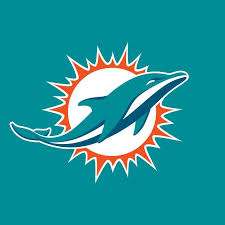The following inept advice from a math tutor may be instructive, leading us to consider a broader category of ham-fisted guidance. The only necessary back story is that “Robin,” a junior in high school, is in the process of choosing and applying to college when they are not receiving lessons in algebra II.
“Robin needs to prepare for the SAT,” the instructor begins. “Harvard, Georgetown, MIT, and Cal Tech are no longer test optional.”
Robin’s mother points out that Robin has no interest in attending any of those institutions. Robin would not be admitted, nor would they be competitive in the classroom if, through some fluke or computer glitch, they were to receive the “the admissions committee is pleased to inform you…” email. Indeed, in my fifth decade of guiding students through the transition process, I think I can state unequivocally that MIT has rarely admitted a student whose junior year transcript includes “Algebra II” as opposed to “AP Calculus BC.”
The math tutor’s insipid advice is the epitome of “one size fits all.” The math tutor personally may have studied mathematics as an undergraduate at Cal Tech. That experience does not necessitate that Robin also follow that path. Or stated less eloquently, just because I see a donkey braying in a field does not mean that I have to get down on all fours, throw my head back, and pontificate loudly.
As always, rather than convey outrage or dismay, I’d like to disassemble the—admittedly misguided—recommendation that Robin take the SAT.
Maybe the math tutor is especially well suited as a part-time instructor at the local college; maybe the math tutor loves math and wants to share their joy with anyone and everyone. As someone who is more than willing to stop strangers on the street and perform “mathemagical” tricks, I get this. But my love of all things arithmetic does not mean that your predilection for anthropology, chemistry, or electronics need be precluded.
Your love of the Jets does not impinge of my affection for the Dolphins. Nor would your blazing lack of interest in all things spherical, sweaty, and violent encroach on my fondness for screaming incoherently at the television on Sunday afternoon.
“Can you see the real me?” queried Roger Daltry of The Who. Stated similarly, why shouldn’t everybody be a math tutor?
I’ll take a guess, Alec. What is “because not everybody likes math?”
Returning to the question of why the math tutor feels so strongly that all of their students take advanced math courses, do well on the math portion of the SAT, and matriculate at math-heavy institutions, we could engage in the following speculations:
- It’s good for business. No math students equates to no billable hours for math lessons.
- They are beyond content with their lives and their choices and want to spread the satisfaction and joy. (Next time you increase your pace and avoid eye contact with religious proselytizers on the sidewalk, see if this argument—they believe strongly and want to share their truth—holds up.
My own advice to Robin would differ significantly:
- Don’t let the tail wag the dog. If and only if you truly are focused on Georgetown, then by all means do everything you can to score well on the math section of the SAT. Georgetown is indeed not test optional.
- But if you are content with one of the 1800 accredited and lovely institutions that are test optional, find something better to do with those hours and dollars that could be thrown at test-prep. I heard recently for example that there have been some worthwhile books published in the past several hundred years. Rather than preparing for the SAT, you might consider reading some of them.
Or go ahead and listen to Robin’s math tutor and focus on learning more math than you need or enjoy.
Let me know how that works out for. you.






